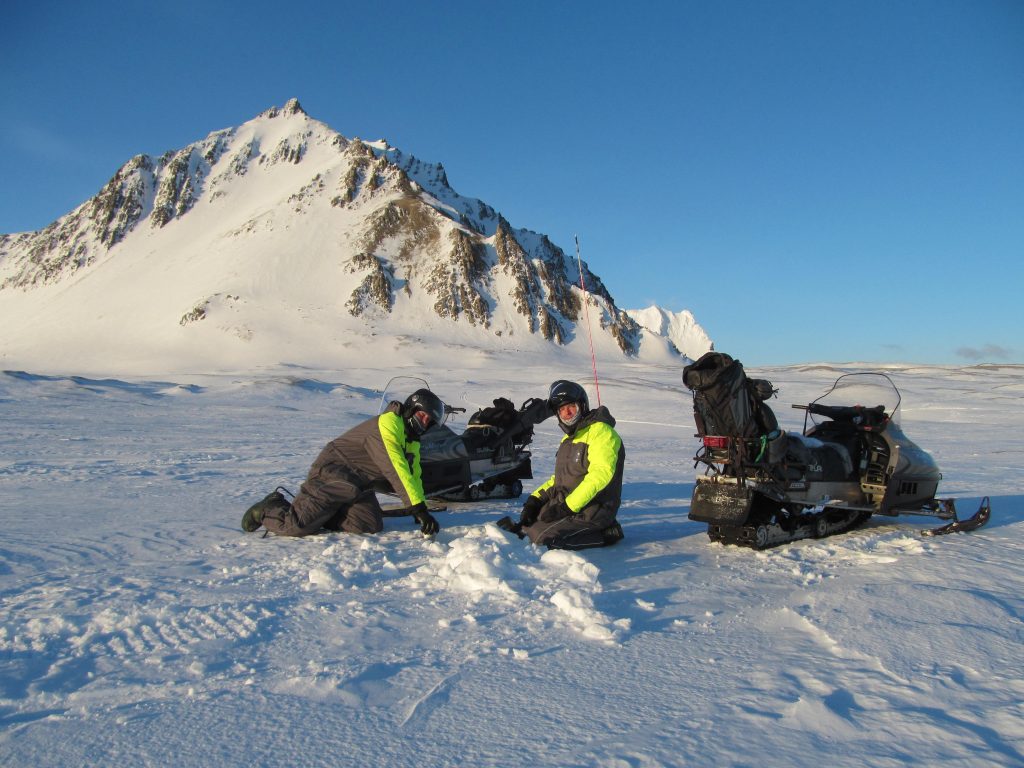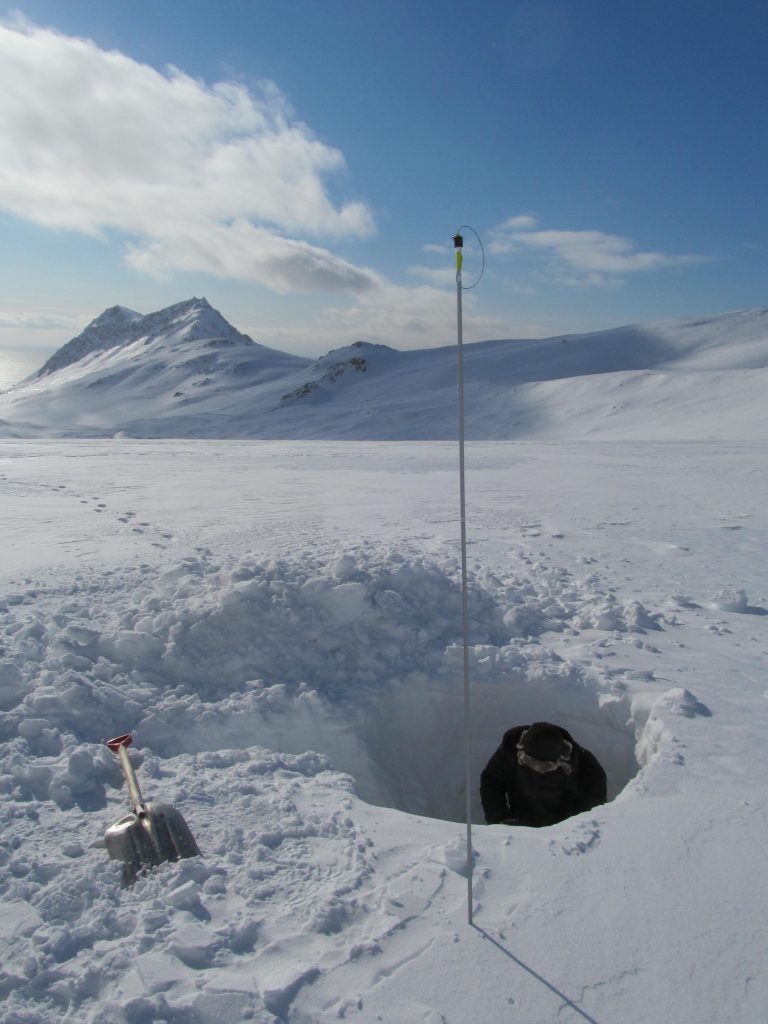Glaciologist
Glaciology is the study of snow and ice and their physical properties. Glaciologists analyze the formation, movement, and effects of the different kinds of glaciers and glaciation, for example mountain glaciers, ice caps, ice sheets, and ice shelves. A large part of the research conducted by glaciologists analyzes how glaciers and ice caps move and change in response to climate change and how these changes in turn influence climate and the surrounding environment.
Glaciologists conduct experiments and gather data in remote field locations especially on glaciers, on which they install and maintain electronic instrumentation and ablation stakes for mass balance measurements (difference between accumulation and ablation rates). They also collect samples of ice and snow to test for various criteria, including physical properties, as well as chemical composition. Glaciologists use satellite and airborne remote sensing devices to study ice distribution and behaviour. After fieldwork glaciologists write reports on experimental findings and synthesize research.
- Glaciologists measuring snow cover on glacier.
- Glaciologist measuring properties of snow cover accumulated during winter on top of the glacier.




 This project (EDU-ARCTIC) has received funding from the European Union’s Horizon 2020 research and innovation programme under grant agreement No 710240. The content of the website is the sole responsibility of the Consortium and it does not represent the opinion of the European Commission, and the Commission is not responsible for any use that might be made of information contained.
This project (EDU-ARCTIC) has received funding from the European Union’s Horizon 2020 research and innovation programme under grant agreement No 710240. The content of the website is the sole responsibility of the Consortium and it does not represent the opinion of the European Commission, and the Commission is not responsible for any use that might be made of information contained.